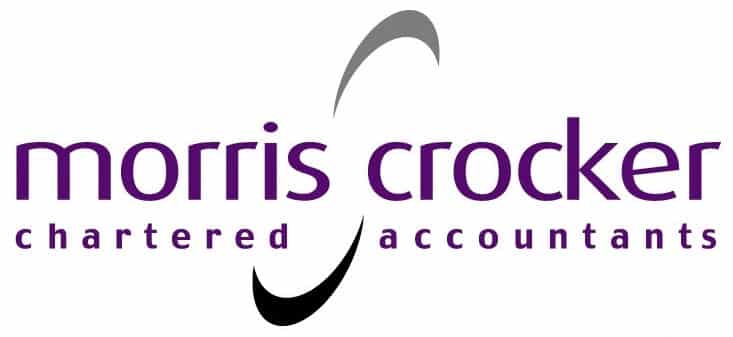What kinds of absence management solutions are there?
Absence management isn’t just about keeping on top of admin – it’s an opportunity to get proactive and work to reduce sickness leave.
Some examples of absence management solutions are:
- Developing a clear absence and sickness policy and training staff to implement it
- Looking after your staff’s mental and physical health (e.g. providing medical insurance)
- Investing in absence management software to cut down on admin and improve your strategy
- Using software to collect absence data to help inform policies.

What is an absence policy and why do businesses need one?
If your business employs anyone, you need an absence policy. Part of a strong absence management strategy, the policy ensures all staff understand how absence is managed at work.
Your policy may include:
- Instructions on how to report sickness absence, e.g. “Contact your line manager”
- Information outlining long-term sickness leave and how it’s managed
- A definition of unauthorised absence and insight into how it’s dealt with.
Preventing staff absence by boosting employee wellbeing
An effective absence management system isn’t just about supporting staff who are absent or on leave.
Improving staff wellbeing is a great way to proactively manage absence, helping you to prevent absence as well as “treat” it.
You can improve employee wellbeing by:
-
Looking after staff mental health
According to the CIPD, poor mental health is the biggest cause of long-term sickness absence in the UK.
Promoting a workplace culture that prioritises mental healthcare can help protect employees – and potentially reduce rates of absence.
You might wish to offer staff:
- Access to free or subsidised talking therapy
- Mental health sickness days (distinct from standard sickness absence)
- Management training on healthy work culture, e.g. encouraging teams to take breaks
- Paid volunteering leave.
-
Facilitating physical wellbeing
You can’t always prevent your employees from sustaining physical injuries or illnesses.
However, there are measures you can take as part of your absence management strategy to reduce the risks, including:
- Health and safety audits of the workspace (e.g. Could staff benefit from guidance on heavy lifting?)
- Consulting a workplace occupational therapist to improve working conditions
- Providing employee health insurance that covers physiotherapy or proactive therapy treatments
- Offering free gym or health club membership – and encouraging staff to use facilities for relaxation as well as exercise.
-
Offering perks to improve morale
When staff are happy at work and feel valued and cared for, they’re less likely to be off sick, and they may be more productive when they’re on the job.
You might wish to consider providing:
- Private healthcare – perhaps with scalable membership – to help staff recover faster from illness or injury
- Improved sick pay rates, reducing stress for the person taking time off and ensuring the business can cover long-term sickness with insurance
- Childcare vouchers to reduce the mental toll on parents worrying about covering costs
- Charity volunteering opportunities, which can boost morale through community engagement.
-
Providing training to shape workplace culture
A positive workplace culture isn’t just a nice thing to have – it can be a major factor in reducing sickness absence in your people.
Training your management teams is a great start, especially in how to:
- Encourage colleagues (and themselves) to take time off when sickness strikes
- Make sure their teams have access to and understand the absence policy
- Adhere to agreed policy when handling a member of their team’s absence
- Identify signs of presenteeism and offer suitable support.
Looking after staff mental health
According to the CIPD, poor mental health is the biggest cause of long-term sickness absence in the UK.
Promoting a workplace culture that prioritises mental healthcare can help protect employees – and potentially reduce rates of absence.
You might wish to offer staff:
- Access to free or subsidised talking therapy
- Mental health sickness days (distinct from standard sickness absence)
- Management training on healthy work culture, e.g. encouraging teams to take breaks
- Paid volunteering leave.

Featured Guide
The IRIS HR guide to Absence Management
Are you looking to improve your absence management system? Download this free, comprehensive guide and discover:
- An overview of different types of absence
- The impact of presenteeism on businesses
- Guidance on absence policy
- Strategies to reduce staff absence
- Absence management software solutions.

How absence management software can help your business
To help you create and maintain an effective absence management system, you can turn to specially designed software.
Absence management software can help you:
- Streamline various admin tasks (e.g. logging sickness absence) through automation, saving you time
- Collate useful data relating to staff absence, helping you make more informed HR and policy decisions
- Offer employees a self-service portal to access personal data and submit changes or requests.
- Access important employee information via the cloud from anywhere with an internet connection.
A complete online absence management system
IRIS Cascade can help you create a fully customised absence management system across your business. It’s perfect for mid-sized and enterprise-sized companies.
As a complete HR support tool, IRIS Cascade helps you stay on top of absence management. Alongside eliminating excess admin, the software can help you plan proactive absence management action, like company-wide training on healthy work culture.
As a cloud-based system, IRIS Cascade’s data is always up to the minute – and its customisable dashboard is accessible from anywhere with an internet connection.

Read more about absence management solutions

Blog Article
Three reasons to choose Every HR by IRIS

Blog Article
How to protect staff and your business with the right HR policies

Blog Article




